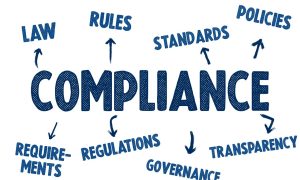You shouldn’t rush into signing a purchase agreement. I’ve seen countless clients make costly mistakes by skimming over critical clauses that came back to haunt them. Understanding what you’re signing is non-negotiable, whether you’re buying property, services, or products. In this article, I will share the five essential clauses you must review before signing any purchase agreement.
Payment Terms and Additional Costs Clauses

The payment structure in your agreement might seem straightforward at first glance. You pay X amount for Y product or service. But the reality is often much more complicated.
Smart buyers always examine the complete payment schedule. You need to know exactly when payments are due, what payment methods are accepted, and what happens if a payment is late. Many agreements include sneaky late payment penalties that can snowball quickly if you miss a deadline.
Additional costs are where things get interesting. Your contract might include language about “administrative fees,” “processing charges,” or my personal favorite, “supplementary service expenses.” These vague terms can hide significant costs.
I once worked with a company that signed a software purchase agreement, only to discover that it was on the hook for implementation costs that nearly doubled its initial investment. The additional costs were buried in dense contractual language that the company glossed over.
Ask specific questions about every potential cost. Will there be maintenance fees? Are there costs for support or training? What about upgrade charges down the road? Get everything spelled out in clear language and exact dollar amounts whenever possible.
Remember this: if a seller can’t clearly explain a cost to you, it’s a red flag. Legitimate costs can always be justified and quantified. Anything less might obscure the actual price tag of what you’re purchasing.
Liability and Indemnities
Liability clauses determine who bears responsibility when things go wrong. These sections can make or break your protection if problems arise after signing.
Many purchase agreements contain liability limitations that cap the seller’s financial responsibility. For example, a clause might state that the seller’s liability is limited to the purchase price, even if their product causes damages worth much more.
You should look for balanced liability provisions. While it’s reasonable for sellers to include some protections, complete immunity from damages should raise concerns. The fairest agreements share risk appropriately between both parties.
Indemnification clauses are equally important. These determine who pays legal costs if a third party sues over something related to your purchase. Most agreements require the buyer to indemnify the seller, but this can sometimes extend too far.
I’ve seen indemnification clauses that force buyers to defend sellers even when the seller was negligent. This adds substantial hidden risk to your purchase.
Pay special attention to any warranties and their limitations. Warranties define what promises the seller stands behind and for how long. Many agreements include broad warranty disclaimers that essentially say, “We don’t guarantee anything not explicitly stated.”
The strongest position for you as a buyer is to have clear, specific warranties with reasonable liability provisions that hold the seller accountable for their product or service. Never accept complete liability waivers that leave you holding all the risk.
Scope of Services Clauses
The scope of services section defines exactly what you’re buying. Vague language here is your enemy, as it creates loopholes that can lead to disappointment and disputes.
Look for specific deliverables with measurable outcomes. Instead of “website design services,” your agreement should specify “a responsive 5-page website with contact form, image gallery, and blog functionality.” The more detailed, the better.
Beware phrases like “reasonable efforts” or “industry standard quality.” These subjective terms allow the seller to underdeliver while technically staying within the agreement’s boundaries.
Time commitments matter too. Your agreement should clearly state what will be delivered and when. Without specific deadlines, projects can drag on indefinitely.
I’ve seen clients struggle with scope creep, where the work expands beyond what was initially agreed upon. Good scope clauses include how changes are handled and what additional costs might apply.
Remember that anything not explicitly included in the scope may be considered an “extra” that requires additional payment. If something matters to you, ensure it’s written in clear, unambiguous language in the scope section.
Termination Rights Clauses
Every relationship has an ending, and your purchase agreement should address how and when either party can walk away. Termination rights vary widely between contracts, and understanding yours is crucial.
First, check for termination for convenience. This allows either party to end the agreement without cause, typically with advance notice. You want this flexibility as a buyer, but many contracts only grant it to the seller.
Next, examine termination for cause provisions. These specify what conditions constitute a breach serious enough to justify ending the agreement. The best clauses outline a straightforward process for notifying the other party of a breach and providing an opportunity to fix the issue.
Pay attention to notice periods. Some agreements require 30, 60, or even 90 days’ written notice before termination becomes effective. During this time, you might still be obligated to make payments.
The financial implications of termination matter too. Will you receive refunds for unused services? Are there early termination fees? Some agreements include liquidated damages clauses that specify what you’ll owe if you terminate early.
I’ve worked with clients who missed these details and found themselves paying for services long after they stopped using them. Don’t make that mistake. A fair termination clause protects both parties and provides clear exit paths when necessary.
Service Level Agreements (SLAs)

Service Level Agreements define the standards you can expect from a service provider. They’re essential for ongoing services like software, maintenance contracts, or managed services.
Strong SLAs include specific, measurable performance metrics. For example, system uptime guarantees 99.9%, response times for support queries under four hours, or resolution times for critical issues within 24 hours.
What makes a good SLA isn’t just the promises—it’s the consequences for breaking them. Look for clauses that specify remedies if service levels aren’t met. These might include service credits, fee reductions, or the right to terminate without penalty if problems persist.
Many agreements include exclusions that weaken SLAs. Watch for carve-outs like “scheduled maintenance” or “factors beyond our control” that might be broadly interpreted to excuse poor performance.
Regular reporting is another key aspect of effective SLAs. Your agreement should specify how and when the provider will report their performance against the promised service levels.
I’ve seen the difference SLAs make firsthand. One client with strong SLA provisions received substantial credits when their software provider had reliability issues. Another with weak SLAs had no recourse when facing similar problems. The difference was entirely in how their agreements were written.
Conclusion
Reviewing these five crucial clauses before signing a purchase agreement isn’t just about legal protection—it’s about ensuring you get what you paid for without unexpected costs or complications.
Remember that most agreements are template documents designed to favor the seller. Don’t hesitate to negotiate changes that create a more balanced arrangement. Many sellers will adjust their terms if you ask, especially if you can explain why specific provisions are problematic.
When significant money is at stake, having a lawyer review your agreement is often worth the investment. They can spot missed issues and suggest specific improvements to protect your interests.
The most important thing is never to sign an agreement you don’t fully understand. Take your time, ask questions, and be willing to walk away if the terms don’t make sense for your situation. The right purchase agreement should feel fair to both parties and clearly outline everyone’s rights and responsibilities.
ALSO READ: What Are the Requirements for Forming an LLC?
FAQs
A: Professional legal review is recommended for significant purchases. The cost of review is typically much less than resolving disputes later.
A: Yes. Most agreements are negotiable, especially if you can explain why specific changes are essential to you.
A: A purchase agreement is a specific type of contract that focuses on transferring goods or services in exchange for payment.
A: Very detailed. They should specify amounts, due dates, payment methods, and consequences for late payments.
A: You’re still legally bound by the terms, even if you didn’t read them. “I didn’t know” isn’t a valid legal defense.





